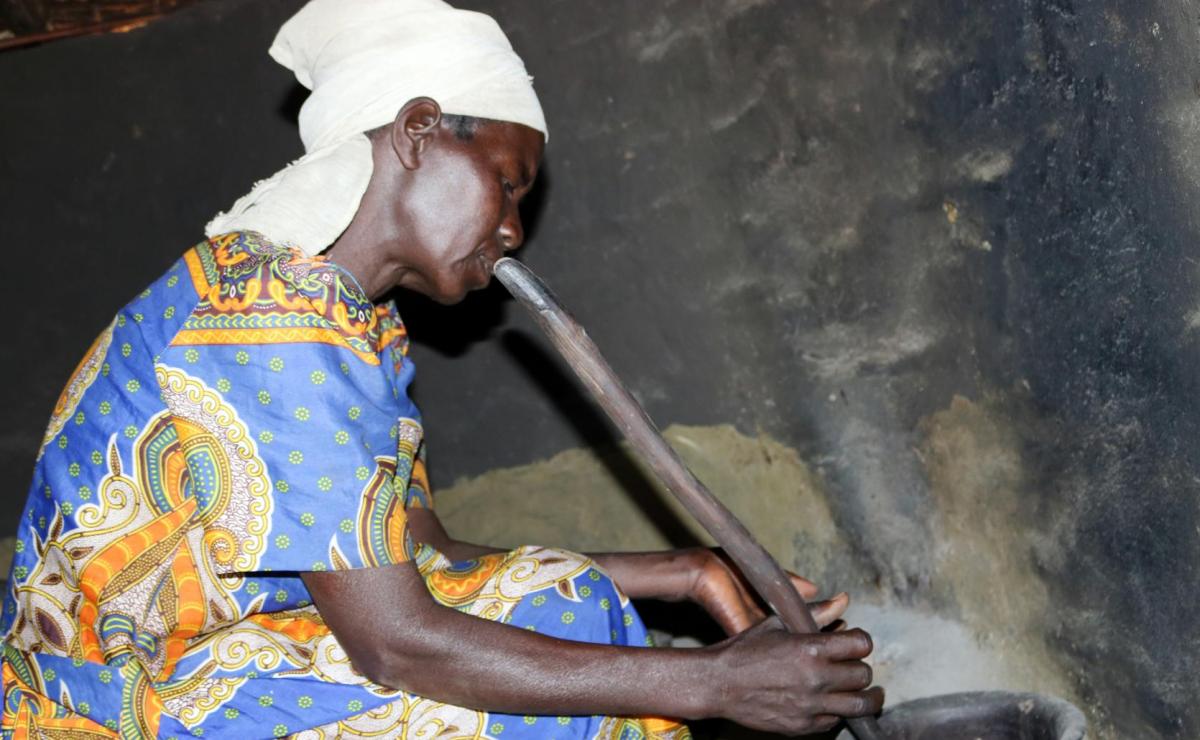Ending widow inheritance in Pader district

She was told to choose a new husband between her two brothers -in-law by her family in law. Doreen Angwech (not real name) narrates that a week after her husband’s death in 2012, her family-law gathered for a meeting at her marital home in Lagara central where she was told that the new husband she would chose would take on ownership of all her family’s property and take care of bother her and the children.
Then a 38-year-old mother of two, Angwech refused to choose any of them saying she didn’t want to get married but to take care of her children and watch them grow. “I was a grieving woman who had just lost her husband and the least I needed was a marriage with another man,” Angwech “I knew all they wanted was my husband’s property and I think that after acquiring it, they would throw me and my children out on the streets.”
Her refusal to get married one of her in-laws marked the beginning of hell on earth for Angwech as she narrates that life after then was filled with death threats, insults and endless calls for clan meetings during which she was despised.
“They threatened to set my children, I and my house ablaze, they called me endless hush names like a witch, harlot, a thief.” Angwech. Even with the threats and insults, Angwech stood by her decision not to marry any of her in-laws. When her in-laws came to throw her out of the house, she sought help from the Acholi clan leader, a clan and tribe to which both her and her late husband belong.
Cultural leaders join fight against widow inheritance
Chief Joseph Moi Oywak who received Angwech’s complaint summoned her in-laws and instructed them to let her stay on her property with her children peacefully.
“I told them that she will only get married to their son if she consents to the marriage. I also reminded them that if they forced her out of her property or in to marriage, then they would face the law stipulated by the clan committee leaders,” Oywakywaka.
If the family did any of the two, they would face a fine of UGX 50,000, 50 strokes for each and organize a feast during which they would return the stolen property or set the widow free from a forced marriage to one of them. This is how Angwech escaped an inheritance of herself and her property.
Many widows in Pader have not been as lucky as Angwech as they have been inherited by their brothers-in-law silently. Widow inheritance risks people’s lives to sexually transmitted diseases, gender based violence, denial of widows their property, and in worst cases suicide.
Cultural and religious leaders empowered to sensitize communities on HIV/AIDs and widow inheritance
To counter the vice and its effects like HIV/AIDS transmission, the Lutheran World Federation (LWF) with funds from Church of Sweden trained 48 cultural and religious leaders in Pader district’s sub counties (Pajule, Lapul, Latanya, and Pader town council) in sensitizing their communities against health risky cultural practices like widow inheritance.
“We trained and equipped them with knowledge and information about HIV spread, prevention, testing, and how people can live healthy with the disease so that they can pass on the information to the people in their communities,” Simon Ocana a Filed Extension Worker with LWF in Pader subprogram.
In spite of all the current efforts to combat the spread of HIV/AIDS in Uganda through behavioural change, LWF’s Naomi Acara explains that some socio-cultural practices like widow inheritance and polygamy have remained an obstacle to the goal of Uganda’s 2013-2020 HIV/AIDS Strategic Plan which is Zero HIV/ AIDS related mortality and morbidity. “Widow inheritance also renders widows powerless in communities thus at risk of losing their property like land to their in-laws.”
Indeed, the trained leaders are playing their part, cultural leaders have established by-laws against health risky practices like widow inheritance, child marriages, defilement and more as explained by Chief Oywakywaka.
Irene Amunu a Reverend at Church of Uganda in Pader town says that with knowledge and information they acquired from the training, they hold community dialogues and radio talk shows with people to discuss HIV messages especially prevention. “We also integrate HIV messages in our Sunday summons, just so people get informed of how its acquired, prevented and how those with it can live healthy.”
Widow inheritance fading from Pader
Chief Oywak explains that widow inheritance has greatly decreased in Pader from over 90% to 10%. He attributes this to the continuous sensitizing of people about the disadvantages of the practice as well as establishing and implementing by-laws against it.
“People know that there is a possibility of acquiring STDs by engaging in widow inheritance, they know that women deserve to be respected and allowed to make decisions about marriage instead of being forced.” Chief Oywak. “The increasing costs of living have also made it hard for men to provide for more than one family, hence contributing to the eradication of the vice in our communities.”

